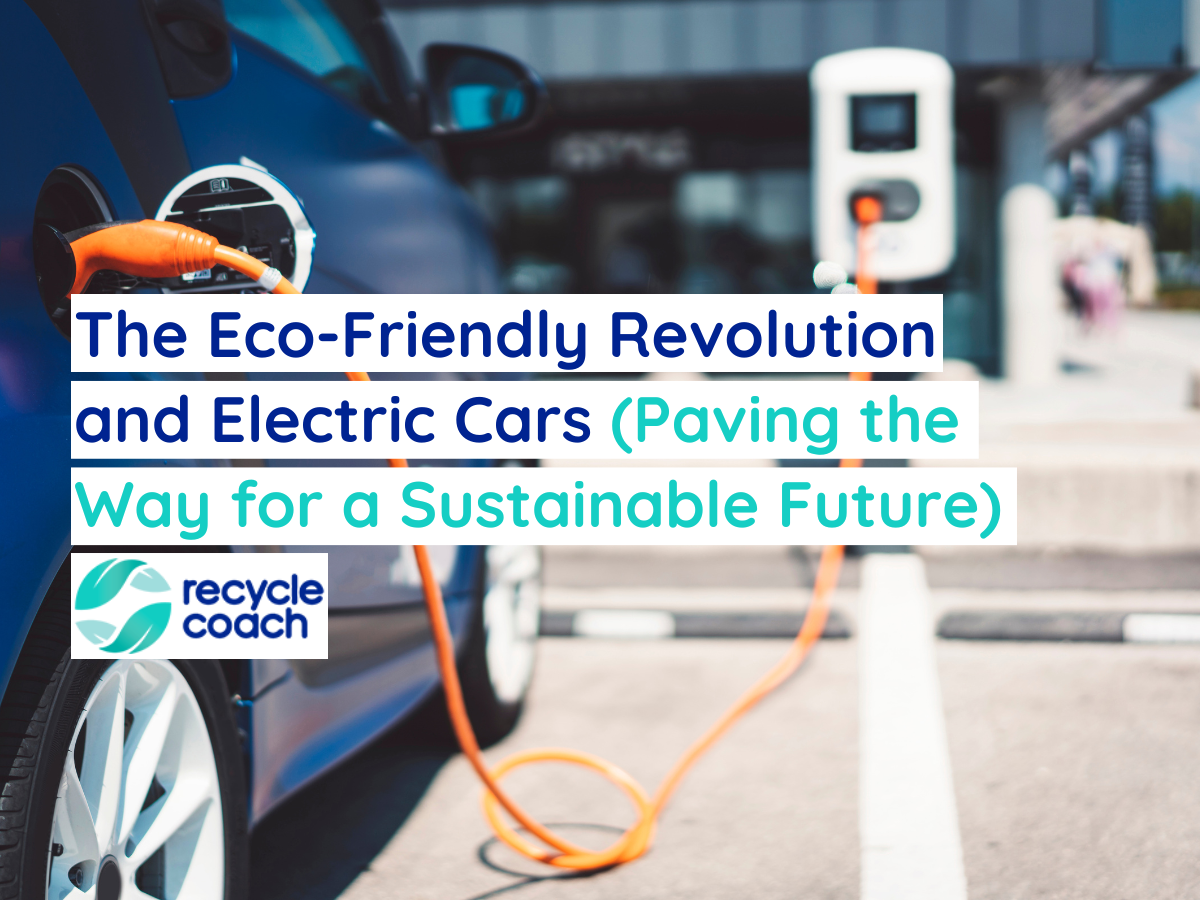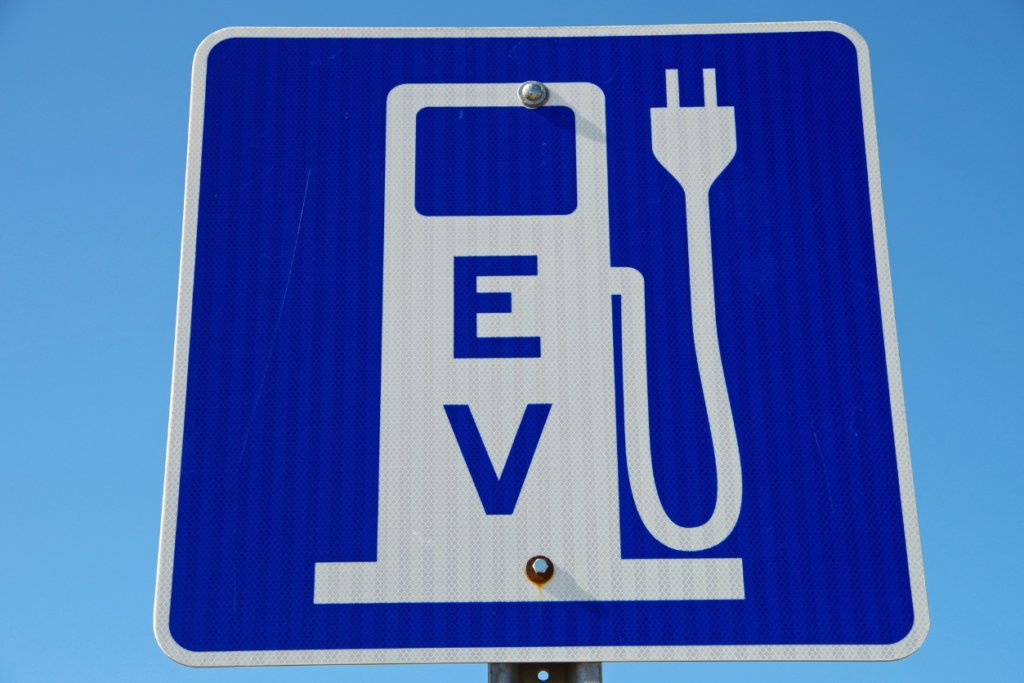The Eco-Friendly Revolution and Electric Cars (Paving the Way for a Sustainable Future)

The world is experiencing an eco-friendly revolution where sustainability is becoming an increasingly important consideration in all aspects of life. One area where this shift is particularly evident is in the transportation sector, where electric cars are rapidly gaining popularity as a more environmentally-friendly alternative to traditional gasoline-powered vehicles. With the ability to significantly reduce greenhouse gas emissions, improve air quality, and decrease reliance on fossil fuels, electric cars are paving the way for a more sustainable future.
Environmental benefits of electric cars

Electric cars offer a number of environmental benefits compared to traditional gasoline-powered vehicles. These benefits are important in the context of climate change and air pollution, both of which have significant negative impacts on human health and the environment.
Reduced greenhouse gas emissions
One of the most significant benefits of electric cars is their ability to reduce greenhouse gas emissions. Unlike gasoline-powered cars, which emit carbon dioxide and other harmful pollutants, electric cars produce zero emissions while driving. Even when taking into account the emissions from power plants generating the electricity used to charge electric cars, studies have shown that electric cars emit significantly less greenhouse gasses than their gasoline-powered counterparts.
Improved air quality
Electric cars can also help to improve air quality, particularly in urban areas where air pollution is a major public health concern. Electric cars produce no tailpipe emissions, which can reduce levels of harmful pollutants like nitrogen oxides, particulate matter, and volatile organic compounds. This can have significant health benefits for people living in cities, including reduced rates of respiratory illness and cardiovascular disease.
Reduced reliance on fossil fuels
Electric cars can also help to reduce reliance on fossil fuels, which are a finite resource and a major contributor to climate change. By using electricity as a fuel source, electric cars can tap into renewable energy sources like wind and solar power, reducing the need for non-renewable sources like oil and natural gas. This can help to create a more sustainable energy system and reduce the environmental impact of transportation.
Advancements in battery technology

Battery technology has played a critical role in the development and widespread adoption of electric cars. Advances in battery technology have improved the performance, range, and reliability of electric cars, making them a more viable alternative to traditional gasoline-powered vehicles.
Lithium-ion batteries
Lithium-ion batteries are the most common type of battery used in electric cars today. They offer a number of advantages over other types of batteries, including high energy density, long cycle life, and low self-discharge rates. These batteries are also relatively lightweight and compact, making them ideal for use in electric cars. However, lithium-ion batteries are not without their drawbacks, including high production costs, potential safety risks, and limited recycling options.
Solid-state batteries
Solid-state batteries are a promising new technology that could offer significant improvements over current lithium-ion batteries. These batteries use a solid electrolyte instead of a liquid electrolyte, which can improve energy density, reduce the risk of fire, and extend battery life. Solid-state batteries are also expected to have faster charging times and be more environmentally-friendly than traditional lithium-ion batteries. However, solid-state batteries are still in the development phase and are not yet widely available for use in electric cars.
Battery recycling

As electric cars become more popular, the need for proper disposal and recycling of their batteries is becoming increasingly important. Battery recycling is a critical process that can help to reduce environmental impacts and conserve valuable resources.
The importance of battery recycling
Electric car batteries contain a variety of materials, including lithium, cobalt, nickel, and other metals that can be reused and repurposed. Battery recycling can help to recover these materials and reduce the need for new mining operations, which can have significant environmental impacts. Recycling can also help to reduce the amount of waste that ends up in landfills and prevent potentially hazardous materials from polluting the environment.
Battery recycling process
The battery recycling process typically involves several steps, including collection, sorting, and disassembly. Batteries are first collected from electric cars and transported to a recycling facility. At the facility, batteries are sorted by type and disassembled, with the various components separated and processed individually. The recovered materials can then be sold for reuse in new batteries or other applications.
Benefits of battery recycling
Battery recycling offers a number of benefits, including reducing the environmental impacts of battery production and disposal, conserving natural resources, and reducing the need for new mining operations. Recycling can also create new jobs and economic opportunities in the recycling industry. Additionally, proper battery recycling can help to ensure that potentially hazardous materials are handled and disposed of safely, protecting both human health and the environment. As the number of electric cars on the road continues to grow, battery recycling will become an increasingly important aspect of the transition to a more sustainable transportation system.
Electric Vehicle Charging and the Environment

Electric vehicle charging plays a crucial role in the sustainability of electric cars. The charging process can impact the environment in various ways, depending on the type of charger used, the source of the electricity, and the location of the charging station.
Types of EV chargers and their environmental impact
There are several types of EV chargers, including Level 1, Level 2, and DC fast chargers. Each type of charger has a different charging rate, which can impact the amount of energy consumed and the associated greenhouse gas emissions. Additionally, the source of the electricity used to power the chargers can also impact their environmental impact. Using renewable energy sources such as solar or wind power can significantly reduce the carbon footprint of EV charging.
Advantages of home charging for the environment
Home charging offers several environmental benefits. By charging at home, EV owners can avoid emissions associated with driving to and from public charging stations. Additionally, home charging allows EV owners to take advantage of off-peak electricity rates, which can result in cost savings and reduced demand on the electricity grid during peak hours.
Public charging infrastructure and sustainable transportation
Public charging infrastructure plays a critical role in promoting sustainable transportation. Public charging stations provide a convenient and accessible way for EV owners to recharge their vehicles while on the go. However, it is essential to consider the environmental impact of these charging stations, particularly in terms of their electricity source and their potential impact on the surrounding community. Ensuring that public charging infrastructure is powered by renewable energy sources and located in environmentally-friendly areas can help to minimize their environmental impact and promote sustainable transportation.
Conclusion
Electric cars and battery recycling offer significant potential for a sustainable future. Homeowners can reduce waste by installing home charging stations and using renewable energy sources. We must also advocate for sustainable transportation policies and infrastructure to accelerate the transition to a cleaner future. Let us take action to support this eco-friendly revolution and build a better world for generations to come.
Author Bio
Steve Rogers is an accomplished and dynamic content writer with an insatiable curiosity to expand his knowledge and expertise. He’s not only passionate about digital marketing and writing, but also about the environment and sustainability. Steve firmly believes in the power of recycling and reducing waste to help protect our planet. Armed with a potent blend of experience, creativity, and a profound passion for ecology, he has carved out a niche for himself as a knowledgeable and respected authority in his field. His unwavering commitment to excellence has inspired him to share his wealth of knowledge with the world at every opportunity, making him an invaluable resource for any brand looking to maximize its digital content while also promoting sustainability.